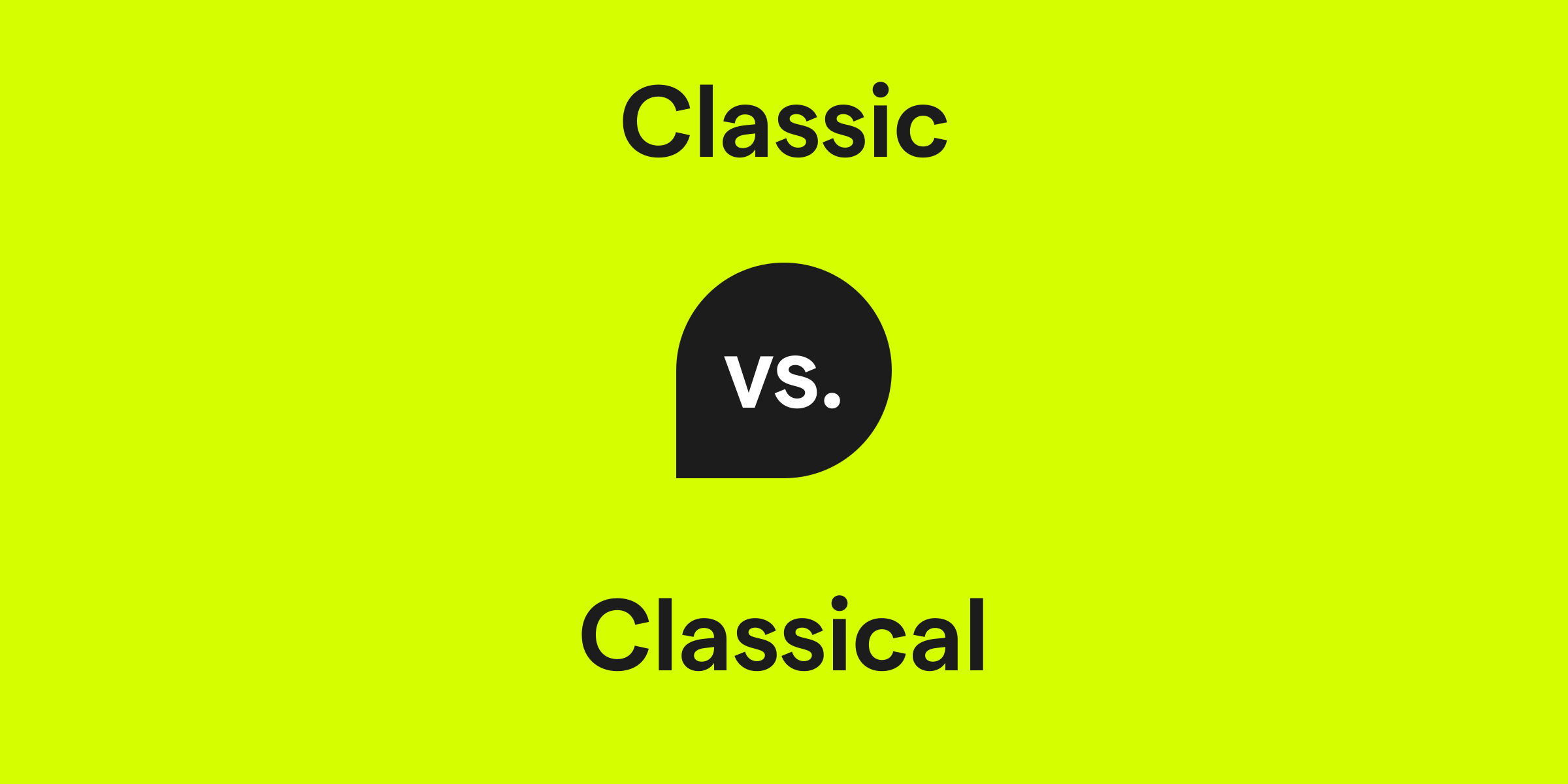Classic vs. Classical: What's the Difference?
The terms classic and classical often overlap, yet they serve distinct purposes in different contexts. Classic refers to something that is a perfect example of a particular style, something that has been popular for a long time, or marked by a notable quality. On the other hand, classical specifically relates to the culture of ancient Greece and Rome, or to a traditional style, particularly in art, literature, music, or architecture. It’s most commonly associated with the historical period of classical music.

How do you use the word classic in a sentence?
The word classic is used to describe something that is a definitive example of its kind and has stood the test of time. It is indicative of quality and enduring relevance, often suggesting an established and widely acknowledged value in literature, fashion, design, or even cars. Whether referring to a piece of work or to a simple, elegantly stylish fashion trend, classic conveys a sense of timeless excellence.
Examples of classic in a sentence
- The 1967 movie 'The Graduate' is considered a classic of American cinema.
- Her style is effortlessly chic, with a classic white shirt and jeans as her go-to outfit.
- A well-made, tailored blazer is a classic wardrobe staple that never goes out of fashion.
How do you use the word classical in a sentence?
Classical is often used to talk about the arts, referring to the traditional forms and long-established principles of music, literature, and other cultural artifacts. Commonly, it is used to define the art forms originating from the cultures of ancient Greece and Rome. Classical may also be applied to describe a specific historical period, most notably in classical music, which ranges from the late 16th century to the early 19th century.
Examples of classical in a sentence
- She has a vast collection of classical records, with Beethoven’s symphonies forming the cornerstone.
- The architecture of the building is inspired by classical Greek styles, characterized by columns and pediments.
- His command of the classical language of Latin impressed his professors.
Classic and classical definition, parts of speech, and pronunciation
Classic definition:
Adjective: judged over a period of time to be of the highest quality; noun: a work of art of recognized and established value.
Classic parts of speech:
Classic pronunciation:
Klas-ik.
Classical definition:
Adjective: relating to ancient Greek or Latin literature, art, or culture.
Classical parts of speech:
Classical pronunciation:
Klas-i-kuhl.
Adjective: judged over a period of time to be of the highest quality; noun: a work of art of recognized and established value.
Classic parts of speech:
- Adjective: That car is a classic example of mid-century automotive design.
- Noun: Every December, we watch 'It's a Wonderful Life,' a true Christmas classic.
Classic pronunciation:
Klas-ik.
Classical definition:
Adjective: relating to ancient Greek or Latin literature, art, or culture.
Classical parts of speech:
- Adjective: The curriculum included a strong emphasis on classical studies.
- Adjective: He has an appreciation for classical music, especially works by Mozart.
Classical pronunciation:
Klas-i-kuhl.
Classic vs. Classical in a nutshell
To encapsulate, classic is a broad term denoting a high standard or something that has stood the test of time across various fields and is not limited to a specific era. 'Classical,' however, is more specialized, often associated with the arts, particularly music of a certain historical period or the culture of ancient Greece and Rome. Recognizing the distinction can enhance clarity in communication, whether you're discussing fashion, automobiles, architecture, or literature.
Get AI Writing Assistance Wherever You Type
Make sure your vocabulary is on point and every punctuation mark is in the right place, no matter where you’re working. Grammarly works across more than 1 million websites and apps so you can improve your writing without copying, pasting, or breaking focus.

More Commonly Confused Words
Interest piqued? Pore (not pour) over other commonly confused words to help your writing reach peak (not peek) performance.